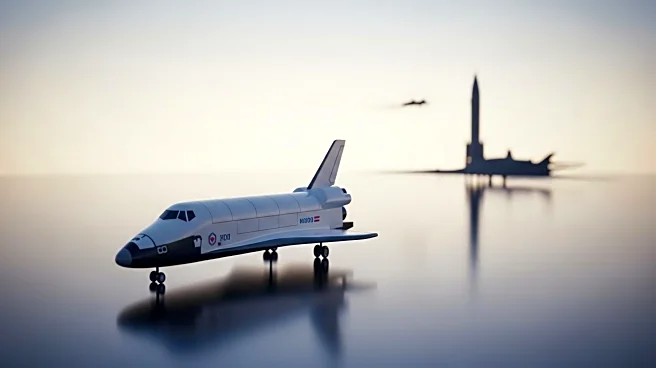What's Happening?
Senators are set to hear from witnesses regarding the U.S. strategy to compete with China in the ongoing space race, particularly in space science. The White House's fiscal 2026 budget proposal for NASA suggests a significant reduction in funding for space science, cutting it by 47% and terminating over 40 active and planned missions. This move contrasts sharply with China's ambitious plans to expand its space science capabilities, including missions to Mars, Jupiter, and Venus, as well as international collaborations. The Senate's draft NASA authorization bill aims to counteract these cuts by supporting key programs like Mars Sample Return and the Habitable Worlds Observatory.
Why It's Important?
The proposed budget cuts to NASA's space science programs could have profound implications for U.S. leadership in space exploration. As China accelerates its space science initiatives, the U.S. risks falling behind in technological advancements and international collaborations. Maintaining robust funding for NASA is crucial for sustaining America's competitive edge in space science and ensuring continued innovation in areas such as planetary defense and exploration. The Senate's efforts to protect NASA's funding reflect a strategic move to preserve U.S. interests in the global space race.
What's Next?
Congress faces a critical deadline to pass a full-year appropriations bill and a comprehensive NASA authorization bill by October 1. These legislative actions are necessary to prevent the implementation of the White House's budget cuts. If a continuing resolution is required, it should include provisions to maintain current funding levels for NASA's pivotal science missions. Congressional action is essential to uphold U.S. leadership in space science and prevent ceding ground to China in this strategic domain.











